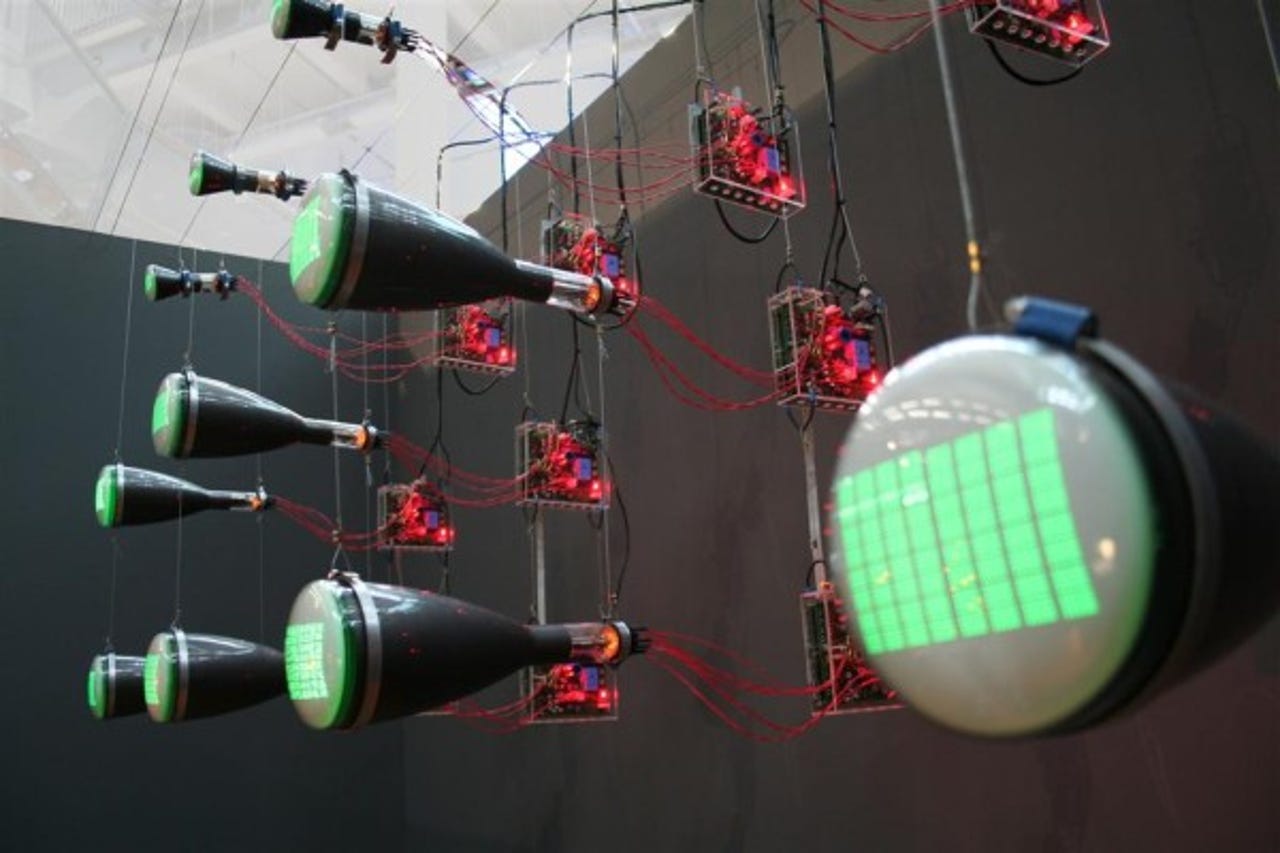Love Letters from a 1951 Ferranti wins first Tony Sale Award

Dr David Link’s LoveLetters, an art project recreating a historic computer program for writing emotional notes, has won the first annual Tony Sale Award, launched by the Computer Conservation Society at the BCS headquarters in London.
Link’s reconstruction involves running the original software, written by Professor Christopher Strachey, on a functional equivalent of the 1951 Ferranti Mark 1 computer on which it first composed its algorithm-generated love letters. These would be addressed to “Darling Love” or “Jewel Duck” or whatever, and signed M. U. C. for Manchester University Computer, unless the user entered a name in 5-bit Baudot code. Words were selected using the Ferranti’s random number generator. For example:
DARLING SWEETHEART
YOU ARE MY AVID FELLOW FEELING. MY AFFECTION CURIOUSLY CLINGS TO YOUR PASSIONATE WISH. MY LIKING YEARNS FOR YOUR HEART. YOU ARE MY WISTFUL SYMPATHY: MY TENDER LIKING.
YOURS BEAUTIFULLY
M. U. C.

The Ferranti Mark 1 was a commercialised version of the pioneering Manchester Baby computer, which used Williams Tubes (cathode ray tubes) for storage instead of for screen displays. Link’s version uses a PC emulator.
Link’s LoveLetters installation does use some original components, such as a Creed 7 teleprinter and various switches, to give viewers a better idea of what it was like. However, after much searching, Link says that “most of the components don’t exist anymore.”
But the installation does include the manuals (Turing 1952, Prinz 1954), Geoff Tootill’s lab notebook – he was one of the main constructors of the machine – and the maintenance engineers' logbook from July 1951.
Link was born in Düsseldorf in 1971 and did his PhD in Berlin on the early history of computer text generation. When he read about Alan Turing working on a program to generate love letters [in Alan Turing: The Enigma, by Andrew Hodges] he says, “I was completely thrilled. I was even more thrilled when I found the source code had been preserved in the Bodleian Library in Oxford. Receiving the source code forced me to write an emulator to run it, because it was impossible to understand the program. That led me to construct this hardware memorial. That’s the potted version!”
LoveLetters has been extremely successful. This year, it has been exhibited at the Alexander Ochs Galleries in Berlin, and Documenta (13) in Kassel, Germany. Later this month it will be at the Heinz Nixdorf Forum in Paderborn, Germany, and next month at the Microwave Festival in Hong Kong. In 2010, it was part of the Fun With Software exhibition shown in Eindhoven in Holland and then the Arnolfini gallery in Bristol.
Dr David Hartley, past chairman of the Computer Conservation Society, explains: “Tony Sale, who died a year ago, founded the CCS, he did the Colossus rebuild, helped found The National Museum of Computing at Bletchley Park, and so on. He was a unique person, but above all he was an engineer. To commemorate and keep alive his memory, we thought we ought to have an award for someone doing some good engineering work in computer conservation – not a lecture – because that was in his image. That’s engineering in the sense of both hardware and software.”
“That’s why I consider myself doubly lucky to have received the prize,” adds Link, “because it’s coming from an engineering background. It means LoveLetters has been accepted by both the art world and the engineering world.”
Link is now collecting other examples of Ferranti Mark 1 software: “everything I can find while some of the people who worked on it are still alive.” He says his next project may be to recreate another of Strachey’s programs: one that plays draughts (checkers).
Other projects nominated for the first Tony Sale Award, sponsored by Google, were a DEC PDP1 restoration at the Computer History Museum in California; the Time-Line Computer Archive being developed by Michael Armstrong and Sandra Hodson, in Wigton, West Cumbria; and a reconstruction of Konrad Zuse’s Z3 Computer (PDF) in Hunsfeld, Germany.